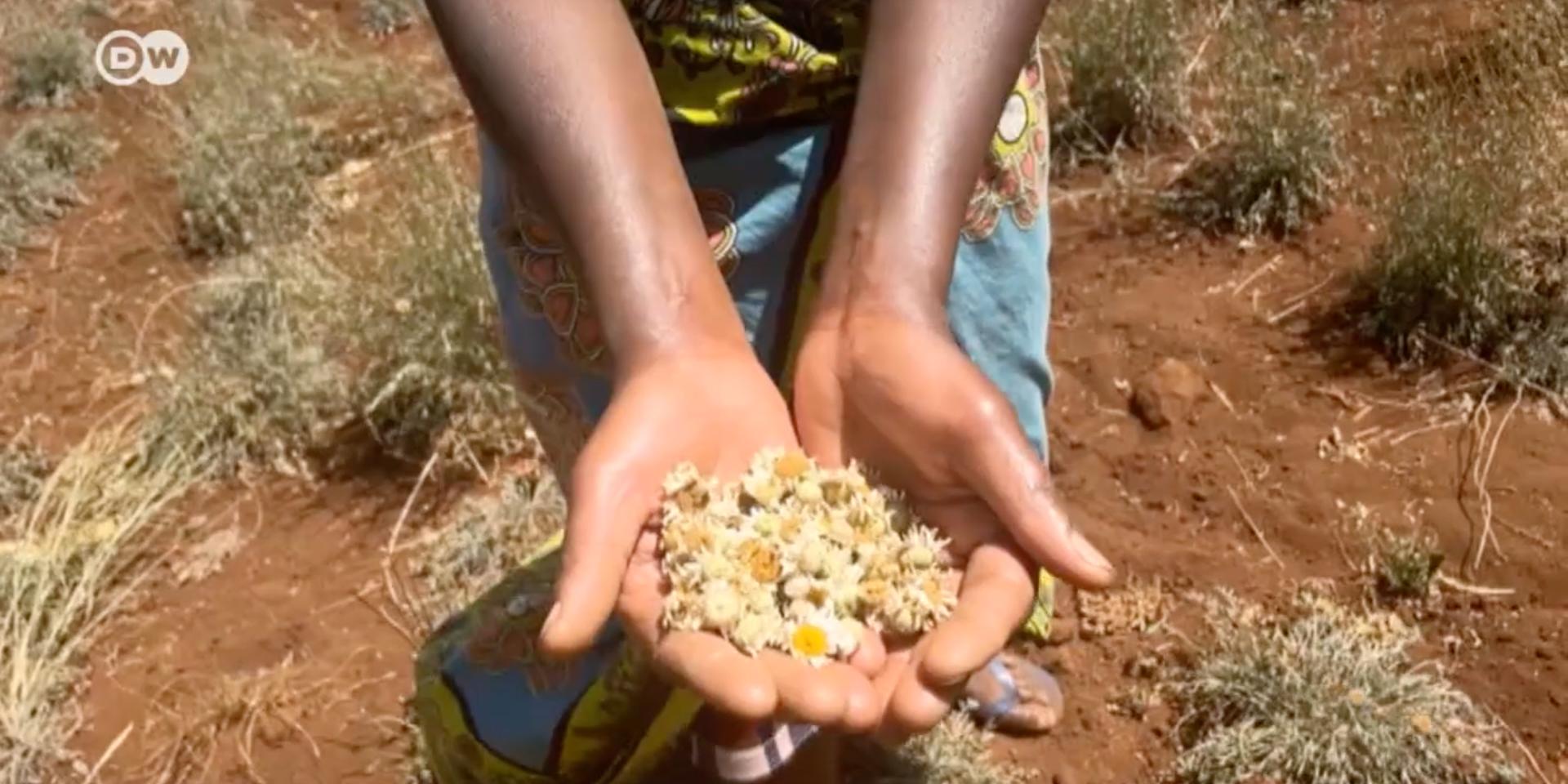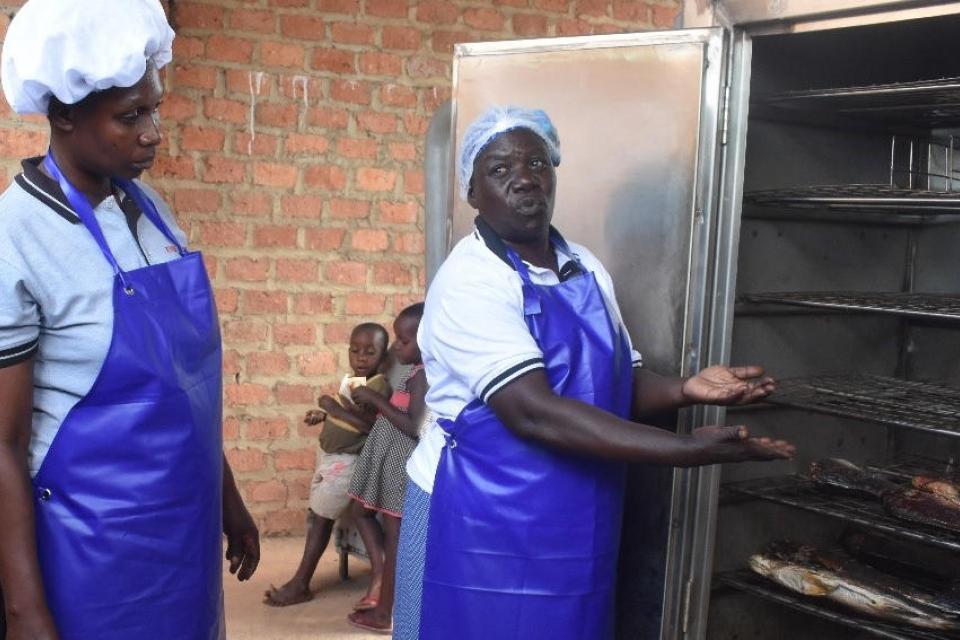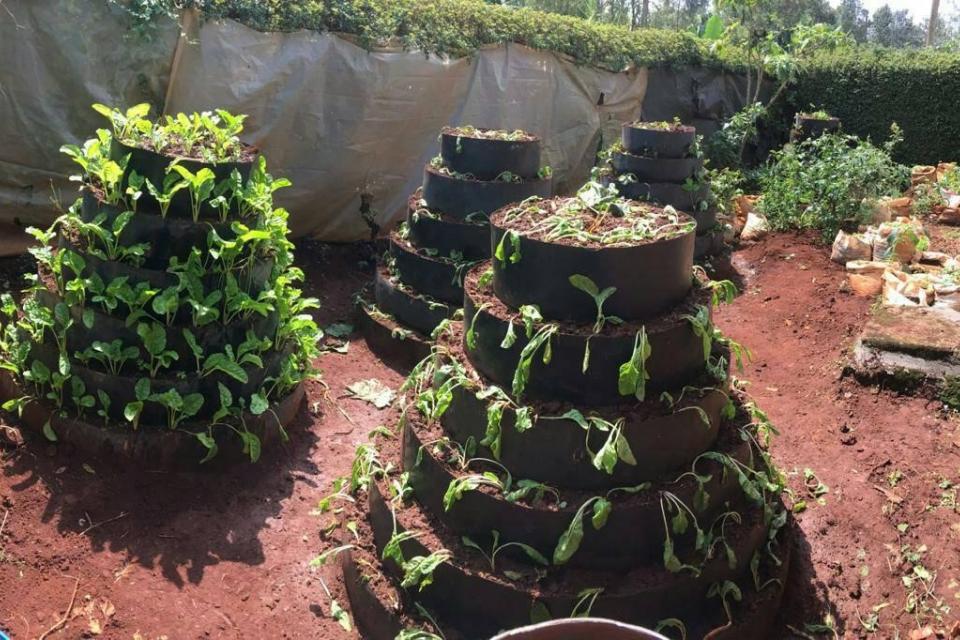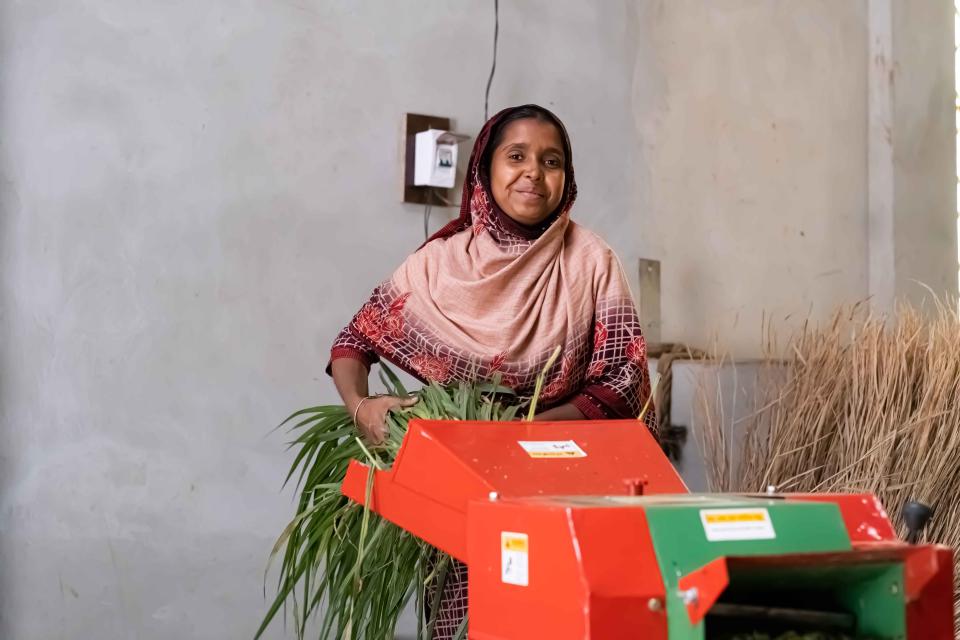Technology shaping pyrethrum revival path for Kenyan women farmers
 Photo via DW Kiswahili.
Photo via DW Kiswahili.
In early 2023, the CGIAR GENDER Impact Platform ran a series of virtual training modules for science communicators on how to develop and pitch stories on agricultural technologies that work for women.
The story below was produced by Wakio Mbogho and originally published by Sayansi Magazine as a result of this training. Enjoy!
A new solar-drying technology is enabling women farming pyrethrum in Nakuru, Kenya to maximise on product quality, quantity, and their incomes.
The technology was introduced in Subukia area of Nakuru County, following research conducted by Good People International, a women empowering organization. It consists of four solar dryers, each with 18 beds measuring 2m by 2m, which can dry up to 288kg of fresh pyrethrum flowers at a time.
Workers attached to the solar dryers pick up pyrethrum flowers from registered farmers on Wednesdays and Saturdays.
“Once there they are spread on the tables, it takes a day or two for the flowers to completely dry. We then pack them in sacks, which are sent to the pyrethrum processing company,” says Mark Nginya, who is attached to the solar driers.
Racheal Waruguru, an official of the Pyrethrum Processing Company of Kenya, says:
“When a farmer comes with her product, we weigh it first and pay Sh230 per kilogramme upfront. She then waits for more cash to be paid once we have analysed and determined the pyrethrin content of her product. The higher the pyrethrin content, the more money the farmer gets.”
Ruth Wangari, an agronomist at Good People International, said things had changed for the better for several mothers of children with disability who were initially unable to go out and work.
“We also noticed that most of these women lacked land, hence relying on their husbands or fathers to farm,” she says.
The organization has been collaborating with the Kenyan Ministry of Agriculture on initiatives to support women-led homes to secure sustainable income sources.
“We target to support women through the whole value chain, training them on how to grow pyrethrum. We have also guided and encouraged them to open a cooperative society to enable them to manage the market for their produce,” says Ms Wangari.
The pyrethrum farmers now form part of the Subukia Pyrethrum Growers membership.
“The group helps farmers to find market for their produce and protects them from brokers who seized the business earlier and caused them losses,” says Joseph Muchiri, the group’s chairperson.
And now the women can count their blessings.
“I pluck these flowers when they are fresh and take them to the dryers, because during rainy seasons I might be caught off-guard and my produce might go bad. This really helps me,” says Josephine Wangari.
Lucy Wairimu, another beneficiary, says: “Women now have sustainable income. They are able to sustain their families. We usually pluck pyrethrum flowers after every two weeks.”
For Josephine Wangari, this is a complete change for local families, especially those headed by women.
“Initially I would take care of my family of six children first before going out to look for farm jobs. I was rarely lucky because most jobs would be taken up by men by the time I arrived. Several times I returned home empty-handed to the disappointment of my children. Many women suffered this too,” she says of the project that has prioritized women.
The Ministry of Agriculture has vowed to revive and strengthen pyrethrum industries. The farmers now want the government to expedite its plan to give pyrethrum farmers free seedlings, and ensure reliable water infrastructure for irrigation.
--
Disclaimer: This story has not been reviewed by the CGIAR GENDER Impact Platform; the views expressed here are those of the author(s) and do not necessarily reflect the views of the Platform.


